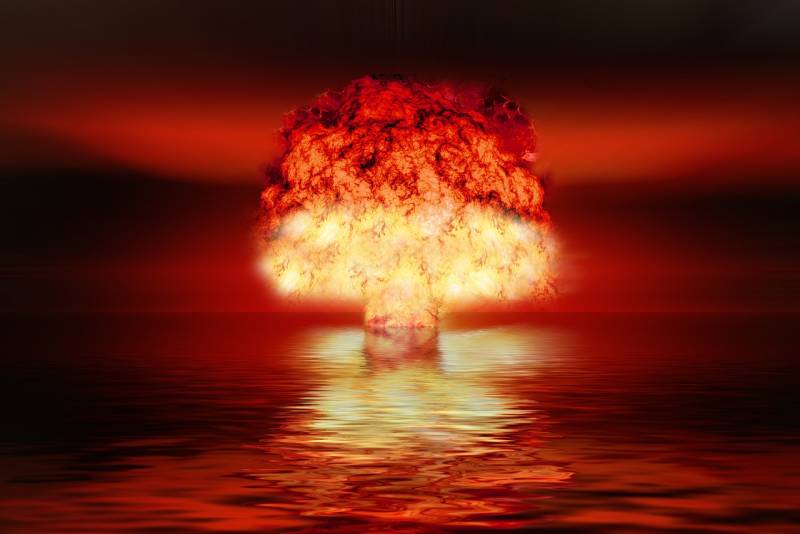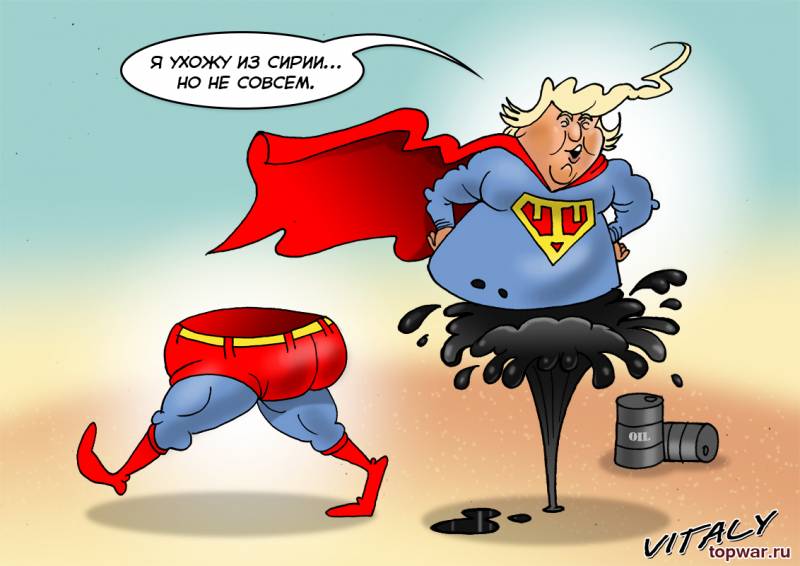Now - 12:03:53
Is it possible to shift nuclear strategy of India?

Tangle good neighbors
General Singh began with the history of the emergence of India and its neighbors, nuclear weapons and relations between them. With Pakistan India has fought three times and, in General, except for the first time (when the parties and armies-it really was not, the usual "mass slaughter of good neighbors"), these wars ended for Pakistan's defeat, as well as small local conflicts were also, in General, in favor of India. But with China it was much less clear. To China it is possible to record the Indian-Chinese war in 1962, which ended with Indian troops for a very unpleasant defeat and territorial losses. In fairness I will say that in this war the Indians themselves made a fool of himself, not using a clear superiority in aviation relics, for fear of the retaliatory strikes of the PLA air force (who were without parts, low-resource balance, and almost without fuel, but in Delhi did not know about). And other mistakes were. And the war became inevitable only after giving India political asylum to the fugitive Dalai Lama, if I went to such a step, so to calculate the consequences needed and prepare for them, and this was not done. But in more recent border conflict, 1965 and 1968, in other parts of the border (in Sikkim) to achieve the Chinese really have not been able, because of those conflicts remained local clashes. But the 1962 war in India remember.
In addition, China is first among the States in the region became a nuclear power, October 16, 1964, it happened recently anniversary was. It gave a new dimension to the threat to India's security and gave her the incentive to develop nuclear weapons as a deterrent to Chinese aggression. India tested its first nuclear device on 18 may 1974, and then declaring a moratorium on further development, manufacturing and deployment, which lasted almost a quarter of a century.
Pakistan started the process of developing nuclear weapons in January 1972, almost immediately after the loss of East Pakistan (now Bangladesh) as a result of the military disaster in 1971. In the opinion of the Indians, and Singh writes, Pakistan may secretly tested their nuclear devices in China in the late 1970s and early 1980s, Evidence no no, it's just a propaganda bogey new Delhi, and the Pakistani bombs are a much greater role was played by the cooperation with the West, especially the United States, however, often "blindly". Pakistan conducted its first nuclear test ("open", according to Indian propaganda) may 28, 1998, a few weeks after the second nuclear test of India when she took the decision to acquire nuclear weapons. Both parties then conducted a series of tests. Since India, according to Singh, has made significant progress in the areas of nuclear weapons and missiles.
Well, it is in India think so, although some success really is.
Singh believes that nuclear weapons India has been to deter China from any military adventures in the Himalayan region. But this is not the case: China's nuclear weapons for a very long time, and India has decided to acquire a potential when this came close, it is Pakistan. But, nevertheless, for India, China remains one of the two major nuclear rivals. Recently joined them, and the United States. Despite the good appearance of relations between Washington and new Delhi, illusions in India is not much, because one of the goals of the nuclear development of the country is furnishing some no ICBMs and SLBMs with a decent range, allowing to solve tasks of Intercontinental somehow — instead of the current DIY type K-15 with a range of 750 km.
The Essence of Nuclear doctrines of India and neighbors
Almost from the beginning the Indian Nuclear doctrine stood on two pillars, or rather, elephants (this is India): the concepts of "credible minimum deterrence" (this refers to the number of potential and its diversity) and "no first use". China also holds a similar view, but in India fear that in crossing certain "red lines" in Beijing can change my mind. General Singh argues that China has still a territorial claim to India's state of Arunachal Pradesh and in the districts along the border with Chinese Tibet.
Pakistan didn't want to take those (mostly demagogic) obligations, contrasting, for example, Indian strategy "cold start" tactical ballistic missiles with warheads of low power. Cold start — blitzkrieg using deployed in peacetime, tank and mechanized groups of up to 8-10 mechanized and tank brigades deep into Pakistani territory, whose task is access to densely populated areas of Pakistan and its nuclear sites to prevent the use of nuclear weapons (without using its ability, itself). The Indians expect that the enemy will use tactical nuclear weapons on their own land (why would he not do not), but the Pakistanis did it will be used and acquired a number of specialized tactical missiles with ranges up to 60 km with 4 missiles in the PU. But officially the Pakistani Nuclear doctrine is formulated by the principle of deterrence by "guaranteeing instant massive retaliation with nuclear weapons" against ground and air attack thatcrosses certain red lines. Nuclear strikes against "cold starts" in the depths of Pakistan Indian tank groups fit into this concept.
Fears of a "plum"
According to the Indian General, India's Nuclear doctrine suffers from some serious shortcomings. So, it concerns only the scenario of a nuclear conflict, and the attempts to "spin" the country's territory free of nuclear preventive use of nuclear means is not provided. Obviously, someone in India fears that the country's army forced to keep powerful groups are against Pakistan and China, and, given the close ties between Islamabad and Beijing fear a war on two fronts. They say, forces may not be enough. The General believes that the country needs to pay more attention to capacity development of tactical nuclear weapons. India, of course, available. Most of their nuclear capabilities, by the standards of the superpowers, is attributed precisely to TNW. How would the Indians did not consider their nuclear bombs very small power under the wings of "Mirage" and "Jaguars" strategic weapon, it's not.
But is not the number of ammunition, and strategy.
Doctrine of India provides for the use of "massive nuclear retaliation" in the case that the enemy will resort to first use of any kind of nuclear device. That is, if Pakistan uses a nuclear weapon of low power (by the standards of these countries) to destroy the advancing Indian armored units in the desert of Rajasthan, India will immediately reset the number of "strategic" nuclear bombs on Pakistani cities and strategic targets and will cause the missile attacks. And it's understood that in return Pakistan will bomb and rockets to attack Delhi, Mumbai, Jodhpur, Chandigarh, etc.
But fears of a retired General, in practice, at the time when Indian forces are attacked with nuclear weapons low power, new Delhi will be intense diplomatic pressure, primarily by the superpowers, so she didn't respond with nuclear weapons. At least not responded massively and weapons of the "big" power (they have such may be deemed to be and charges 40 kt). Singh fears that the Indian leadership is likely to yield to such international pressure and "SAG".
Tactical — same
The Alternative being proposed is similar to the impact of tactical nuclear weapons of small and especially small capacity. And it needs to amend the Nuclear doctrine.
In this case, General Singh why do you think that in the years of the cold war, the United States launched a powerful group of TNW in Europe because he feared to be crushed by Soviet troops and their allies in a conventional war (and rightly feared). But it's not. The Union grouping TNW was much more powerful than the American, and the escalation of the conflict to the level of tactical nuclear weapons also led NATO to defeat, because technology and tactics we were much better prepared for nuclear use than the adversary. The situation since at this level, by the way, NATO has become as if not worse, given the potential difference of tactical nuclear weapons and their development and quality. But it's not about us and the Americans, and about India.
Besides, they say, India is difficult due to the terrain to successfully attack China, but to use tactical nuclear weapons are just quite convenient, comfortable and inexpensive, given the low occupancy of the land in this area. With Pakistan, too, is simple: there. on the other side, the desert, or there are Pakistanis who are obviously not sorry.
Basically, the idea of an Indian retired strategist is clear. But there are pitfalls. The opposite side can Jack up rates to strategic (or intended) level of nuclear forces, and this should be remembered.
But in any case it is interesting that India, with one hand trying to smooth out its differences with China and even Pakistan, much of their fears. And this, of course, mutually, primarily from Pakistan. To reconcile China, India and Pakistan — a task that tries to solve Russia. It is the Russian Federation in the framework of the SCO constantly puts the part of "Asian love triangle" position, forcing them to cooperate. For example, a variety of coalition exercises. But exercise is difficult in the long term, and while the parties continue to plan and sharpen nuclear and conventional knives. The joy of the aggressive circles of their countries, and "best friends" of India, China and Pakistan from the US — they are beneficial to nuclear arsenals in Asia was focused anywhere but on them, and any tensions such players Washington profitable.
Related News
The United States will deploy to Syria's tanks. Where and what will be the Americans?
The withdrawal of US troops from Northern Syria does not mean the final departure of Americans from this troubled country. Syria has oil, albeit small, and this means that the American army is voluntary, the country does not leave...
Notes Of A Potato Bug. Tale that it is better not to read at night
Hello, my dear, appreciated and discounted! Everything, in short! Today I decided to indulge you with the tale that I wrote for you, my favorite readers. Age, apparently, came. The fact that I'm no longer a Cockroach, and his Gran...
Lynching — a form of protest? The events in the village of Tsiglomen'
the Maniac man too?the Village of Tsiglomen ' that in the Arkhangelsk region (strictly speaking, now a suburb and one of the districts of Arkhangelsk), not so long ago celebrated its official shestisotletie. The first time it is m...
















Comments (0)
This article has no comment, be the first!